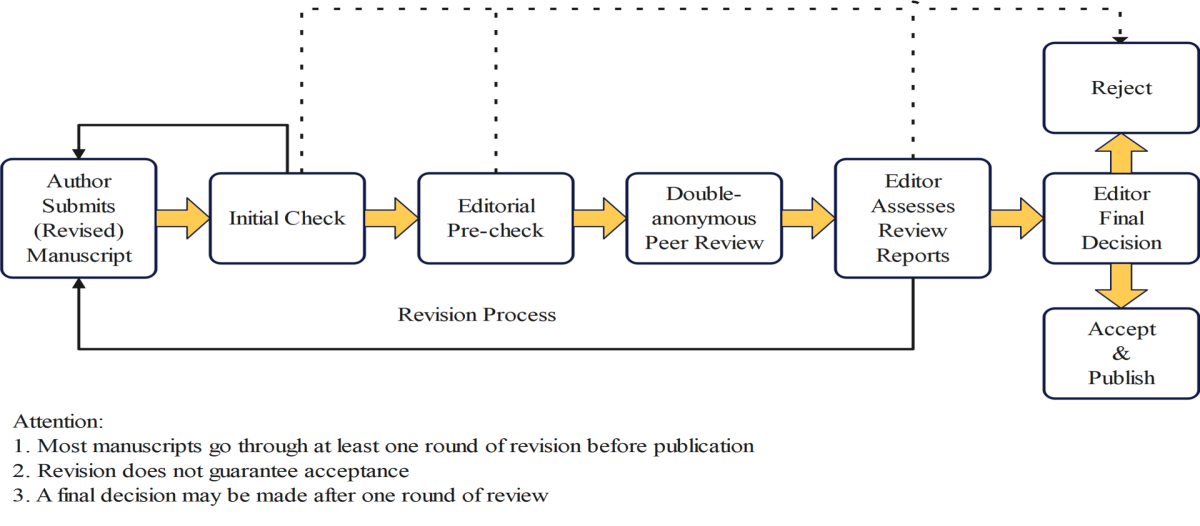Editorial Process
Peer review is the process of critically assessing manuscripts submitted to journals by external experts who are not members of the editorial staff. An overwhelming 90 percent of authors believe that peer review contributes to the enhancement of their article's quality. The primary purpose of peer review is to uphold the integrity of science by eliminating research that is either invalid or of low quality.
The Journals of Cerebration Science Publishing adopt double-blind peer review, submitted manuscripts will be evaluated by at least two independent reviewers. Feedback from the peer reviewers will contribute to the Academic Editor’s decision on whether to accept or reject the manuscripts for publication. All papers published by Cerebration Science Publishing are peer-reviewed and assessed by the independent Editorial Board Members, and the Editorial Office is not involved in decisions to accept or reject manuscripts.
An overview of the Editorial Process is shown below.

Pre-check
This stage consists of two main steps to assess the suitability and quality of the manuscript: an Initial Check by the Editorial Office and Editorial Pre-check by an Academic Editor (the Editor-in-Chief or an Editorial Board Member).
Peer Review
From the manuscript submitted to final decision or until publication, there are dedicated in-house editors who coordinate the communication of manuscript matters.
All journals of CSpublishing operate double-blind peer review, the reviewer’s name is NOT disclosed to the author and the author’s name is also NOT disclosed to the reviewer.
All journals of CSpublishing require at least two qualified independent reviewers evaluate a submitted manuscript before the Academic Editor can reach a decision. The Academic Editor can recommend reviewers during pre-check stage. Besides, the Editorial in-house editor will also invite reviewers identified through a web search of relevant articles.
Reviewers who accept the invitation to review have three weeks to write review report through the online platform. When reviewing the revised manuscripts, reviewers can provide their review reports within one week. The period may be extended upon request.
Revision and Editor’s Decision
After receiving at least two valid review reports, the Editorial Office will invite an Academic Editor to evaluate the quality of the review reports. At this stage, the Academic Editor may request to collect additional review report from the third independent qualified reviewer.
The Academic Editor will make the first decision on the manuscript according to the review reports: accept, minor revision, major revision, or reject.
Minor Revisions——one week for author to revise
Major Revisions——three weeks for author to revise
Authors should respond to each reviewer's comments in a point-by-point manner. If the author disagrees with the reviewer, they must provide a clear response.